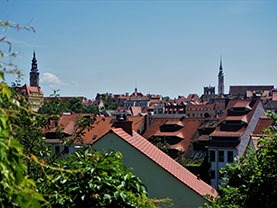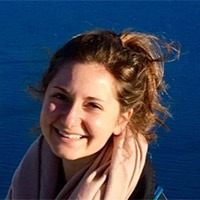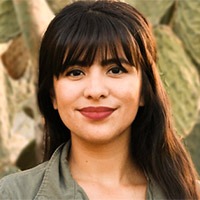
University of Nottingham
Nottingham, United Kingdom
Program Facts
Program Type: Exchange
Credit Type: Transfer Credit
Terms Available: Academic Year , Fall , Spring
GPA: 3.0
Class Eligibility: Junior , Senior , Sophomore
Program Open To: UA Students
Language of Instruction: English
Application Deadline: Academic Year: April 15 , Fall: April 15 , Spring: October 1
Coordinator: Nicole Staab
Explore University of Nottingham
The University of Nottingham is renowned internationally as a center for academic excellence. This is due to the teaching excellence and outstanding reputation with academic institutions and employers throughout the world. The University is also recognized for its research, much of which is considered internationally important. Students may take classes in the following subject areas:
- School of American and Canadian Studies (including the Institute of Film and Television Studies)
- School of English Studies
- School of History
- School of Humanities (comprising: Department of Archaeology, Department of Art History, Department of Classics, Department of Music, Department of Philosophy, Department of Theology and Religious Studies, School of Modern Languages and Cultures)
- School of Biology
- School of Biomedical Sciences
- School of Biosciences
- School of Chemistry
- School of Computer Science
- School of Mathematical Sciences
- School of Pharmacy
- School of Physics and Astronomy
- School of Psychology (Please note that all the courses offered by the Division of Psychiatry and Applied Psychology come within the School of Medicine and are postgraduate level, students are not able go on exchanges with these courses. Students are able to take undergraduate courses in Psychology and Neuroscience with permission from the school.)
Please note: The University of Nottingham's Fall semester exam schedule runs through January. If you are planning on attending for the Fall semester only, please contact the program coordinator to determine if sitting early for exams is possible. In the event it is not, please consider a Spring semester or completing an Academic Year.
For additional courses, you can view Nottingham's Visiting and Exchange Student Modules website and the Module Catalogue.
Fall Courses
Art History
History of Art: Renaissance to Revolution
This module surveys a broad range of art (across different media) and architecture from the Renaissance to the Age of Revolutions (c.1789). The module will discuss individual artists and works and set them within their respective historical contexts. The module will involve thinking about how contextual study can be married to visual analysis. The module will raise questions about changing forms of art and their relation to their social, political and philosophical contexts.
Biology
An Introduction to Biotechnology
Biotechnology is an interdisciplinary and cross-disciplinary science. One of the challenges in studying towards this discipline is to make connections from different scientific disciplines whilst studying broad based fundamental processes of living organisms at the biochemical, molecular and genetic levels. The aim of the module is to introduce the learner to- a broad based Biotechnology discipline with particular emphasis on plants, animals and microbial systems; Impact of biotechnology in different sectors (Red, Green and White Biotechnology); Ethics of Biotechnology. The module will shed light on pathway specific modules available to pursue in second and third years with an overview of type of research projects they can pursue in final years. This module has a number of learner centric activities, active learning approaches coupled with tutorials to understand the impact of the discipline.
Bacterial Biological Diversity
This module is designed to provide an understanding of the extent of prokaryote biological diversity. Following introductory lectures on microbial taxonomy and classification, students will undertake two student-centered exercises. The first will be a group exercise to construct a website on a chosen group of organisms covering their taxonomy, biology and ecology. This will include a short embedded video summary. The web pages will be accessible by other students to aid student centered learning of other topics, which will be an essential element for the essay coursework. The second will be an individual exercise to produce an essay including features of a range of organisms represented in the websites.
Conservation Genetics
This lecture module describes the genetic effects of reduced population size, especially as they relate to the conservation of endangered species. Random genetic drift and inbreeding will be discussed in depth, both from theoretical and practical standpoints. The importance of heterozygosity and the consequences of a loss of genetic variability will be examined, and ways of alleviating these, using both experimental and theoretical approaches. This will lead into a review of the units of conservation from a genetic perspective.
Infection and Immunity
To provide a broad understanding in basic immunology and an overview of types of human pathogens and their strategies for living in the host. Also to show how immunology can be used to diagnose disease and develop vaccines.
Molecular Biology and the Dynamic Cell
A detailed study of the core molecular processes that enable cells to function such as DNA biochemistry, gene expression, protein synthesis and degradation. These sessions will complement lectures on basic eukaryotic cell biology covering a range of organelles and cell structures including the nucleus, plastids, mitochondria, endoplasmic reticulum, Golgi bodies and secretion together with a consideration of cell differentiation.
Criminal Justice Studies
Crime Stories: Crime, Justice and the Media
What is the relationship between crime, justice and the media? Does media depiction simply reflect public interests and attitudes, or help to shape them? Does media representation of ‘crime’, ‘criminals’ and criminal justice impact penal and social policies? These are some of the questions this course will debate through drawing on theory, research and illustrative media examples. Examining both ‘factual’ and ‘fictional’ representations of crime and justice, the course examines the extent to which media representation reflects reality, and impacts on attitudes, emotions and behaviors. There are two main strands to this course, the first focuses primarily on theorizations regarding the construction of crime news, and some of the methods that can be employed to critically analysis this. In addition, and as illustrative, we examine traditional depictions of ‘crime’, ‘criminals’ and ‘victims’ in media noting how social divisions/ inequalities and stereotypes are represented and reproduced.
The second strand of the course addresses depictions of crime and criminal justice agencies in entertainment media, and on the overlap between fact and fiction in relation to crime. For instance, how do fictional representations shape our perceptions of the realities of crime and criminal justice? We will also examine the increasing role of new media, both in spreading information about crime and its uses by police and public to carry out, detect and police crime. The course will also consider arguments that the media themselves are ‘criminal’ – such as the ways in which media organizations can break the law (e.g. phone hacking), manipulate and censor and/ or be complicit in state abuses or cover-ups (e.g. sexual abuse).
Ecology
Evolution and Behaviour
A series of student-driven assignments, discussion groups and problem-solving workshops on evolutionary biology with an emphasis on behaviour. Example topics include: adaptation, sex and evolution, kinship theory, communication, and human behavioural ecology.
Evolutionary Ecology
The module will consider current knowledge of, and research into, the ecological causes and evolutionary processes that govern natural selection, adaptation and microevolution in natural populations. Three approaches to the study of evolutionary ecology will be used: theoretical and optimality models; the comparative method and direct measurement of natural selection in the wild.
Economics
Growth and Development in Long-Run Historical Perspective
In this module, we will explore the long-run, historical determinants of the wealth of nations. We will begin by taking a long-run view on modern economic growth, showing how this has led to dramatic changes in the relative wealth of nations over the last 500 years. We will then ask two key questions: why have modern economic growth started in some places rather than others? And while have some countries been able to catch up, while others have not? These investigations will improve our understanding of why are some countries much richer than others, and will give us some important insights on how to promote sustained growth in developing countries. The module draws on a vibrant new literature in economics that looks at comparative development as the outcome of a long historical process, and uses techniques originally developed in economics to improve our understanding of history. Without going into the technical details, the module reviews the main findings of this literature, discusses their implications for modern development experiences, and lays out the main challenges for future research. By providing an historical perspective on growth and development, the module will endow students with a better understanding of contemporary economic issues. It will also give them some exciting examples of how the economic techniques they will learn in later modules can be used to understand the world better.
International Trade
This module is an introduction to international trade theory and policy. It covers the core trade theories under perfect and imperfect competition and applies them to understanding the pattern of trade, gains from trade and modern topics like foreign outsourcing. On the policy side, it examines the effects of different government trade policy instruments and the role of international trade agreements.
The Politics of Economics and the Economics of Politicians
How does economics impact on politicians? And how do politicians impact on economics?
You will study both contemporary economics and the political leaders who have put key economic theories into practice throughout history.
This course covered the following topics: The scope and method of economics; Alexander Hamilton and the role of state in the economy; Sir Robert Peel and Free Trade; The Meiji Emperor and Industrialisation; Franklin D Roosevelt and Demand Management; Ludwig Erhard and Supply Side Economics; Margaret Thatcher and Monetarism and Rolling Back the State; Deng Xiaoping and Growth, Development and Convergence.
If reassessment is required, a single assessment will replace all failed assessment components of the module.
Engineering
Design and Implementation of Engineering Software
Quality Software Engineering demands consideration of good design practice, not just programming techniques, in order to produce robust, reliable, portable, maintainable and cost-effective codes. This is particularly the case for large-scale applications in the broader commercial and technological context involving both recycling and enhancement of existing codes as well as when working in software teams. Many of these good design principles are recurrent in many branches of engineering.
This module presents a range of design and established good practice issues; explaining why they are important for good Software Engineering, if not strictly necessary for basic code functionality. Starting from the key issue of decomposing large problems into parts, with clear functional specifications, testing procedures and interfaces, the need to consider the overall structure of the software under development, as well as its possible reuse and evolution, is discussed and this leads to an introduction to Object Oriented Programming (OOP) as an elegant and reliable means of constructing inherently good quality software.
The motivation, benefits and appropriate use of OOP are discussed in the context of both simple electrical engineering examples and cases that are more general. This module specifically introduces competent programmers in a procedural language (e.g. C) to OOP with implementations in C++. Encapsulation, polymorphism and inheritance will be considered in detail.
Engineering Sustainability – Energy, Materials and Manufacture
The module aims to provide students with knowledge of key environmental and sustainability issues of relevance to energy supply and use, materials consumption, and product design/manufacture. Topics include:
1) Drivers for sustainability, including patterns of energy use, material consumption, waste generation, and associated environmental impacts in UK and globally.
2) Factors influencing the availability of non-renewable and renewable energy and material resources.
3) Principles for the efficient use of energy resources including energy use in buildings, heat and power generation, and heat recovery systems.
4) Life cycle assessment of engineering activities, with focus on greenhouse gas and air pollutant emissions, their impacts, and mitigation measures.
5) Economic analysis of investments in energy savings, material substitution, product design, and value recovery from end-of-life products; Cost-benefit analysis incorporating environmental externalities; and the role of government regulations in influencing business decisions.
Introduction to Software Engineering and Programming
This module provides first year undergraduate students in the Department of Electrical and Electronic Engineering with the technical skills required to analyse, design and implement solutions to practical engineering problems.
Students will be provided with the skills required to design and develop code solutions that can implemented on multiple platforms; these skills will be further enhanced through their on-going use in the project component of the first year.
English
Shakespeare's Histories: Critical Approaches
This module offers an introduction to Shakespeare through a close focus on one particular genre of drama – the history plays – which was hugely popular in England’s commercial playhouses in the late-sixteenth and early-seventeenth centuries. Looking in detail at a sequence of four plays – Richard II, 1 Henry IV, 2 Henry IV and Henry V – the module will explore the structure, form and content of Shakespeare’s histories, considering their interest in national and regional identities, their interest in kingship, power and authority, and their exploration of sexual politics, war and identity.
Working across several areas of research in the School of English, the module explores how the plays reflected and contested the ideologies of their own moment. Through consideration of the plays’ history of adaptation and performance on stage and screen, the module also considers how the plays have been repeatedly remade to speak to the concerns of later eras and cultures up to the present day.
Songs and Sonnets: Lyric poetry from Medieval Manuscript to Shakespeare and Donne
Through the exploration of lyric poetry, this module examines cultural and literary change from the fourteenth to the seventeenth century. It will consider the rise of named poet, the interaction of print and manuscript culture, the representation of love, and the use of the female voice. It will develop further students confidence in handling formal poetic terminology and reading poetry from this period. It will also enable students to think pragmatically about the transmission of lyric in modern editions, and about how best to represent the form.
Environmental Science
Building a Habitable Planet
The unifying theme of this module is biogeochemical cycling - the production, distribution and cycling of materials on the Earth and their availability to, and use by, biological organisms. The introduction covers the history of the universe, from the big bang to the evolution of the Earth's surface environment, via formation of galaxies, stars, elements and the solar system. Then we describe the major global systems and their circulations as they are today - solids (plate tectonics, formation and erosion of crustal rocks), liquids (oceans, temperature and salinity gradients) and gases (atmosphere, weather and climate). In the final section we examine the major materials - including carbon, nitrogen, sulphur, oxygen and metals - and their budgets and cycles; and the interactions between biological and physical/chemical processes on a global scale.
Geography
Planet Earth: Exploring the Physical Environment
This module integrates knowledge taken from the hydrosphere, oceans and continents to inform an understanding of global physical systems as they affect people and the environment. The module considers:
Hydrological cycles; Climate change; Principles of Earth and geomorphological systems; Fluvial geomorphology and biogeomorphology
History
British Foreign Policy and the Origins of the World Wars, 1895-1939
This module provides a study of British foreign policy, from the last years of the Victorian Era to the German invasion of Poland in 1939. It focuses in particular on the policy of British governments, giving an historical analysis of the main developments in their relationship with the wider world, such as the making of the ententes, entry into the two world wars, appeasement and relations with other great powers. It also discusses the wider background factors which influenced British policy and touches on such diverse factors as Imperial defense, financial limitations and the influence of public opinion.
Making the Middle Ages 500-1200
This module provides an introduction to medieval European history in the period 500-1200. It offers a fresh and stimulating approach to the major forces instrumental in the shaping of politics, society and culture in Europe. Through a series of thematically linked lectures and seminars, students will be introduced to key factors determining changes in the European experience over time, as well as important continuities linking the period as a whole. Amongst the topics to be considered are: political structures and organization; social and economic life; and cultural developments.
Rethinking the Tudors: Monarchy, Society and Religion in England, 1485-1603
The Tudor period was one of the most transformative in English history. It began on the battlefield, as Henry VII wrestled the crown from the hands of the much-maligned Richard III, and ended with the death of Elizabeth I, the first queen to successfully rule England without a male counterpart. The intervening period witnessed a break with the papacy that fundamentally altered the religious and political make-up of the realm, and saw royal authority become increasingly absolute under a monarchy who were now also the heads of the church. All this left England a fundamentally different place in 1603 than it had been in 1485. Given the attention the Tudors have received in popular culture, and in the school curriculum, there are few students of English history who know nothing of the period. Thus, this module aims to expand on and challenge this knowledge to bring to life a clearer picture of how monarchy, power and religion operated in sixteenth-century England.
Mathematics
Differential Equations
Mathematical models based on systems of ordinary or partial differential equations are used in a vast range of disciplines, ranging from classical fields such as fluid and solid mechanics to more recent applications in mathematical biology and finance. The complexity of these models is often so great that numerical methods are the only ones available to construct solutions. However, in this course we will learn how to make analytical progress in the presence of a small parameter using asymptotic methods, to determine similarity solutions and to obtain qualitative information using the techniques of dynamical systems theory.
Music
Digital Composition
This module develops core skills in professional digital composition, using Logic Pro software.
Topics addressed may include: Analysis and study of digital composition techniques; Completion of Industry specific composition briefs; Creation of sounds using synthesis; Recording and sampling techniques in EXS24; Audio and MIDI programming and editing; Exploring professional mix techniques: e.g. dynamic processing, time-based effects (reverb,
modulation), equalization and automation to attain width, height, space, depth and dimension; Understanding audio files and industry standard export formats; Mastering audio: metering, loudness, monitor calibration.
Global Music Studies
This module offers an introduction to the fields of ethnomusicology and popular music studies. Students will study a range of musical cultures beyond the traditional canon of Western art music. The module examines different meanings, practices, and theories of musics from a diverse range of cultures, surveying traditions from Asia, the Americas, Africa, the Middle East, Europe, and the Pacific. It incorporates an introduction to ethnomusicological theory and method and an overview of key studies in Anglophone popular music.
Neuroscience & Cognitive Science
Building Brains
This module explores how the nervous system develops, is organized, and processes information. This is achieved through presentation of comparative invertebrate and vertebrate studies, consideration of evolutionary concepts, and a detailed analysis of the development, structure, and function of the mammalian brain. The lecture sessions are complemented by practicals on Drosophila and chick embryo development, on the neuroanatomy of the human spinal cord, and dissection of human brains subject to tissue availability.
Neurons and Glia
There is a limited number of places on this module. Students are reminded that enrolments which are not agreed by the Offering School in advance may be cancelled without notice. To provide students with an understanding of the mechanisms behind electrical conduction in neurons. The role of the membrane potential in establishing a voltage gradient against which action/synaptic potentials provide the primary means of signaling within the nervous system will be described in detail. The role of ion channels in providing the means by which trans-membrane currents can be generated and the role of myelin in accelerating conduction will be described. The role of astrocytes in maintain the appropriate environment for optimal neuronal function will be described, as well as the role of glial cells in metabolism, higher cognitive functions, and the disruption of ion homeostasis that characterize brain tumors and epilepsy.
Philosophy
Philosophy and the Contemporary World
This module will provide students with the resources necessary to critically understand and constructively engage with a variety of topical practical, social, and political issues and phenomena. These include a range of psychological phenomena of relevance to both university environments and social life, and large-scale political and cultural developments that invite moral and intellectual concern. An overt aim of the module is to provide students with the intellectual skills necessary to undertake their duties as responsible citizens in a democratic society within a multicultural and multiracial world. Possible content: Education: Purpose of education; Is there a right to higher education? Who should pay for higher education? Free speech: Why value free speech? Censorship and Pornography; ‘Speech Codes’ and ‘Hate Speech’; Safe spaces. Identity and prejudice: Race and racial politics; Homophobia; Transphobia; Intersex; Class, Disability; Representation of Religion in Politics; Psychology of Bias.
Civic responsibility: People, Animals and the Environment; ‘Bullshit’, truth, and post-truth politics; Suffrage; Media Culture. Global justice: War; Terrorism; World hunger; Migration and Refugees. Ethics and technology: Human enhancement; Drugs and sport; Ethics and Artificial Intelligence; inductive risk.
Plant Science
Applied Plant Physiology: From Cell to Crop
This module provides a comprehensive understanding of plant physiology with an applied context from the molecular level to the field. There is an emphasis on the mechanisms that plants use to capture and utilize physical resources i.e. solar energy, water and nutrients. The module examines the physiological basis of resource capture and utilization in growth and development, physical aspects of the plant environment incorporating key processes (photosynthesis, respiration, uptake and transpiration of water, the uptake and role of mineral nutrients).
This physiological understanding will be applied in an agricultural context to consider major crop species in the UK and worldwide, and how cropping is affected by soil type. Limitations to resource capture by crops, and how growers overcome these, will be considered in relation to integrated crop management. The module also considers contemporary issues and future developments in agronomy and the role of the agronomist in successful crop management.
Molecular Plant Pathology
This module will cover the molecular techniques being used to develop an understanding of plant/pathogen interactions. It will then cover the molecular biology of plant pathogens, how these cause disease, and the mechanisms used by plants to defend themselves against such pathogens.
Sociology
Classical Sociological Theory
This module seeks to equip students to understand the broad theoretical and methodological positions adopted by a range of classical social theorists, and the way their perspectives have been taken up within subsequent sociological debates. The classes revolve around a series of readings and discussion themes designed to help students master theoretical discourses and the claims they contain and to explore how they can be used and modified to conduct the sociological analysis of contemporary phenomena.
Contemporary Theories of Crime, Justice and Society
The focus of this course is on contemporary theories in criminology. But it considers them in the context of the development of criminology, and how they relate to earlier perspectives in the subject, and the increasingly diverse, rapidly changing and globalized world of the early 21' century. The course will be taught by members of the criminology teaching team and the perspectives covered will vary according to staff availability and specialism. The table below gives an indication of some of the contemporary perspectives the course may consider and the earlier, foundational perspectives which they seek to develop, transcend or critique.
Restorative Justice
You would have learned in previous years of your degree that there are significant problems with the way that crime is defined, who achieves victim status and how crimes are dealt with. This course considers an alternative approach, restorative justice, in responding to some of these challenges. It combines lessons from a broad spectrum of disciplines to understand why people behave the way that they do, why current approaches are ineffective and to interrogate the range of approaches that have developed to provide an alternative response.
We will explore the adoption of restorative justice by looking at how some practitioners are attempting to reform the CJS from the 'inside out', but also how others are making a challenge to the system from the 'outside in' from around the globe. Areas of application will include crimes dealt with in the criminal justice process as well as societal level conflict involving human rights abuses. The course combines both academic writing, media resources and practitioner case studies to interrogate both the strengths and limitations of the approach.
Youth, Crime and Justice
This course explores the phenomena of youth, crime and justice. Analysis of official statistics and self-report survey data will be placed within a broader understanding of the social construction of youth, drawing on political, media and other sources. The course will critically assess explanations of youth crime and desistance, including major theoretical explanations and developmental/life course perspectives. The second half of the course considers social responses to youth crime and the role of the youth justice system in particular. The various discourses which inform youth justice will be compared and the ways in which they have been applied in different jurisdictions will be assessed. Finally, the course will consider the recent focus on early intervention, emerging arguments for minimum intervention and the potential for youth justice reform.
Spring Courses
Anthropology
Greek and Roman Mythology
This module will introduce students to the interpretation of ancient Greek and Roman myth by focusing on a representative range of texts and themes. The module will be team-taught exposing students to a wide range of material and approaches to the use of myth in the ancient world. The module will consider how mythology is used not only in ancient literature such as epic and drama, but also in historical texts, in religious contexts and in the material culture of the ancient world such as statuary, paintings and sarcophagi. It will also introduce students to the variety of methodologies that scholars have used over the years to help interpret and understand these myths and their usages.
Rome and the Mediterranean
The module will examine the archaeological evidence for the Roman period in Italy and the Mediterranean from c. 300 BC to c. AD 550, in the context of the major social, cultural and economic changes of the region in this period and in the context of wider historical and archaeological approaches to the Mediterranean. It is aimed in particular at developing students’ skills in using and understanding source material. Subjects covered include the evidence for use of rural and urban landscapes, public and domestic building and the Mediterranean economy.
Rome to Revolution: Historical Archaeology of Britain
This module provides you with an overview of the archaeology of Britain from the Roman invasion until the industrial revolution. This was a period of dramatic change in Britain, and using key sites and discoveries students will be introduced to the challenges of understanding the archaeology of periods partially documented in textual sources. The module covers the Roman invasion and military and civilian life in the Roman province of Britannia; Anglo-Saxon and Viking incursions and settlement; medieval castles, towns and monasteries; the impact of the Reformation and the growth of the Tudor state; and the role of industry and urbanisation in the making of modern Britain. The teaching is delivered via a mix of lectures and a museum session, on average taking up 2 hours per week across the spring semester.
Biology
Developmental Biology
This module is designed to introduce students to the basic concepts of vertebrate embryonic development and the molecular mechanisms underlying these processes. Maternal determinants, inductive signalling, the cell movements of gastrulation, tissue differentiation and stem cells including embryonic stem cells, will be covered. Specific topics to be discussed will include germ cells, blood and muscle cell differentiation, left-right asymmetry and miRNA. There will be a strong emphasis on the major methodological breakthroughs that have enabled vertebrate development to be understood at the genetic and biochemical levels. These will include model organisms such as Xenopus, zebra fish, chicken and mouse.
Molecular Microbiology and Infections
The course will be delivered in two sections. Section one will cover cutting-edge molecular biology of bacteria focussing on DNA and RNA processes. Specific topics included are; CRISPR-Cas in biology and as a genome editing tool via CRISPR-Cas9; the human microbiome; antibiotic resistance mechanisms and replication of viruses. Section two will cover infections by microorganisms. This will focus on host-pathogen interactions, for example cell envelope structure, and the molecular biology of how bacterial toxins cause disease.
Computer Science
Languages and Computation
You'll investigate classes of formal language and the practical uses of this theory, applying this to a series of abstract machines ultimately leading to a discussion on what computation is, what can and cannot be computed, and computational complexity. You'll focus in particular on language recognition, but will study a range of topics including: finite state machines, regular expressions, context-free grammars, Turing machines, Lambda calculus. Practical applications includes parsing. This module builds on parts of COMP2009 (G52ACE) and introduces concepts which are important to understand the analysis of algorithms in terms of their complexity.
Economics
Current Economic Issues
This module focuses on a range of current issues facing the world economy, seeks to illustrate how economists model such issues, and examines potential policy responses. Example topics to be covered are:
1. Globalisation;
2. Economic Growth;
3. The Global Financial Crisis;
4. The World Economy;
5. Emerging Economic Superpowers;
6. Consequences of Rising Economic Nationalism.
Financial Economics
This module will offer an introduction to some theoretical concepts related to the allocation of risk by financial institutions. Then it will apply these concepts to the analysis of financial and banking crises.
Engineering
Thermodynamics and Heat Transfer
The module will introduce the basic concepts of heat and mass transfer with particular emphasis on the chemical process industries. In addition, it will use the concept of dimensionless analysis and the use of dimensionless numbers for the correlation of data. In mass transfer the main concepts introduced will be related to diffusion and an introduction to mass transfer coefficients.
This module also presents the basics of thermodynamics with particular emphasis on applications to process plant. By the end of the module it is intended that students will be able to analyze most of the common energy-based operations found on process plant.
English
Literature and Popular Culture
You will engage with exciting works situated at the interface of the literature and popular culture. In addition to exploring topics such as aesthetics and adaptation, module material will be situated within cultural, political and historical contexts allowing for an interrogation of the distinction between the literary and the popular. We will explore works from across a range of genres and mediums such as prose fiction, poetry, comics an graphic novels, music, television and film (though note that not all genres/media will be covered in any given year).
Reformation and Revolution: Early Modern literature and drama 1588-1688
Moving from the Spanish Armada of 1588 to the ‘Glorious Revolution’ of 1688, we will read a range of prose, verse, and plays by both male and female authors. Each week’s reading will focus on a key theme of the period’s literature, such as witchcraft, foreignness, and scientific knowledge. We will visit local archives to view the manuscripts of Margaret Cavendish and Lucy Hutchinson, who were prominent women writers with ties to Nottinghamshire. And in your final assessment, you will have the opportunity to design and pursue your own research question, blending close analysis of the period’s literature with discussion of its historical contexts.
The Viking World
More than any other group the Vikings shaped the history of Europe. Their stories and myths are still the subject of fiction, poetry, film and art. This interdisciplinary module introduces students to the Vikings and their time. A key focus of this module is the impact of the Viking expansion, especially on the British Isles and the East Midlands. Students will be made familiar with concepts such as diasporic settlements and identity, and they will also be introduced to the various ways of evaluating sources from the Viking Age and beyond (such as literary sagas, historical sources, material culture etc.). This module is specifically designed as an introduction to Viking Studies. Its materials covers the culture of the Vikings, including their myths and stories (often recorded much later and with much impact on modern writers such as JRR Tolkien or Neil Gaiman), but also the ways they lived, travelled and interacted with other medieval societies. You will also learn a little about the language and the ways in which we can still see their imprints on modern place-names.
French
Introduction to French Literature: Representations of Paris
This module aims to introduce students to the comparative study of literature and culture, inviting students to consider how Paris is represented in a range of texts in the modern period (post-1800). Students will learn reading techniques adapted to different literary genres, and to consider representations of the city within their broader social, historical and critical contexts.
Geoscience
Climate, Atmosphere and Oceans
This module introduces students to some key components of the Earths circulation systems and how those contributes to determining the Earth’s climate on regional scales. It provides an overview of weather formation, atmospheric and ocean chemistry, large scale ocean circulation patterns, and Earth’s resulting climatic zones. It will introduce concepts of climate and how that impacts on functioning of the Earths ecosystems. Students will develop process based understanding of these factors practical as well as the spatial distribution of weather patterns and ocean currents. The students will use models and field measurements of air flow to test how energy is transported. We will look at the scale, rates, distribution and causes of weather systems and the implications of this for global climate change. We will examine the linkages between weather systems and ocean currents.
History
Making the Middle Ages 1200-1500
This module provides an introduction to medieval European history in the period 1200-1500. It offers a fresh and stimulating approach to the major forces instrumental in the shaping of politics, society and culture in Europe. Through a series of thematically linked lectures and seminars, students will be introduced to key factors determining changes in the European experience over time, as well as important continuities linking the period as a whole. Amongst the topics to be considered are: political structures and organization; social and economic life; and cultural developments.
Race, Rights and Propaganda: The Politics of Race and Identity in the Cold War Era, 1945-1990
The Cold War was a conflict defined as much by intellectual and cultural struggle as by conventional military means or diplomatic relations. Cultural concepts such as race and identity were by no means immune from this, but heavily disputed and contested during the Cold War era, playing a decisive role in shaping the foreign relations of the United States, Soviet Union and other powers during this transformative period. This module examines how the United States and Soviet Union dealt with issues of race and identity during the Cold War years, confronting racial questions, challenges and liberation movements from both within their own borders (and each others) and in several theatres of superpower conflict including the Middle East, East Asia and post-colonial Africa - and often viewing them through highly racialized lenses. It also considers how other powers - notably Britain, South Africa and newly-independent African and Asian nations - grappled with issues of race and identity as they sought to understand and work within a new, post-colonial Cold War world. This module aims to provide students with a new and deeper understanding of the relationship between the Cold War world and the politics of race, and an appreciation of the interconnectedness of the domestic and international in Cold War-era foreign relations.
The Soviet Experiment
Soviet rule lasted not quite three-quarters of a century, but this short and turbulent period of history not only brought profound transformations within Russian society and culture and the societies and cultures of the non-Russian republics, but influenced geopolitics in ways that are still at play in the 21st century. This semester-long module will introduce students to the history, politics, society and culture of the Soviet Union from Khrushchev’s Thaw to its collapse in 1991. The lectures will take a chronological approach, explaining the political and social changes that led to the development of institutions, environment, culture and lived experience that even today we recognise as ‘Soviet’. The lectures will be complemented by topic-based seminars based on reading and interpretation of literary texts and analysis of other forms of culture, including music, visual culture, architecture and fashion; other materials may include testimonies, speeches, diaries and memoirs. The module will also focus on aspects of the remembrance of Soviet culture in Russia today. Topics to be covered may include (but will not be limited to): the new Soviet man and woman; science and exploration; internationalism and nationalities; crime and punishment; youth culture; home and leisure; engaging with the state.
The Venetian Republic, c. 1450-1575
This module explores the nature of the Venetian Republic in the later fifteenth and sixteenth centuries. It examines the constitution, and administrative and judicial system, its imperial and military organization, but will above all focus on the city and its inhabitants. The module will examine the enormous cultural dynamism of the city (especially the visual arts from the Bellini to Tintoretto and Veronese), changing urban fabric, the role of ritual and ceremony, the position of the Church, and class and gender.
Travel and Adventure in the Medieval World
The module looks at peoples and places in the period c.1150-c.1250 from the perspective of travel. It shifts the focus of Christian/Muslim/Jewish/Mongol interactions from the more traditional medieval narratives of conflict, crusade and conquest, to those of Trade, Pilgrimage, Exploration and Mission. The introductory classes look at medieval travel and what people in the world with the Mediterranean at its center knew, and thought they knew, about the rest of the World, including far-flung places that only a few people had ever ‘seen’. The lecture and seminar topics include introduce Travel Writing, Monsters, Maps, Crusades, Merchants, Pilgrims, Explorers, Envoys, Missionaries, and Assassins. Examples are drawn from Jewish, Muslim and Christian experience.
Music
Music and Health
This module will address issues relevant for professional performing musicians including injury prevention and treatment, nutrition, exercise and integrative medicinal approaches. We will explore research on topics such as healthy movement for musicians (including Tai Chi / Qi Gong and Yoga), therapeutic approaches such as physiotherapy and Alexander Technique and the latest directions in working with performance anxiety and stage fright such as visualisation, mindfulness and “smart practice” methods as well as time and stress management.
Seminars will introduce readings on these topics supplemented by occasional guest lectures and practical activities, discussion and student presentations.
Nutrition
Nutrition, Metabolism and Disease
Metabolism in the Fed, Fasted and Starved States: The role of carbohydrates, lipids and proteins as energy substrates. A review of how the metabolism of these macro-nutrients is integrated in the fed, fasting and starved states; Nutrition, Metabolism and Exercise: Changes in metabolism associated with different forms of exercise. Current concepts of the role of nutrition in to enhance sporting performance; Disorders of Metabolism: Consideration of some selected examples inherited disorders of metabolism and the metabolic rational for some of the therapies used to elevate their effects; Obesity: Body composition and energy balance. Health, physiological considerations of obesity. Treatment of obesity; Diabetes: History of diabetes. Role of insulin in regulating metabolism. Impaired glucose tolerance, metabolic syndrome, insulin dependent and non-insulin dependent diabetes. Diabetic complications. Treatment of diabetes; Cardiovascular Disease, Lipoproteins, Hyperlipidaemia and Atherosclerosis: Cardiovascular Disease Risk Factors, Structure and function of lipoproteins. Regulation of plasma lipoprotein concentrations. Genetic and metabolic basis of the hyperlipidaemias Nature of the atherosclerotic plaque and the biochemical mechanisms underlying its development.
Plant Science
Molecular Pharming and Biotechnology
Transgenic research and 'Synthetic Biology' approaches have the potential to enable plants to be used as 'green factories' for the production of novel products. In addition, the creation of genetically modified organisms (GMOs) are having a major impact on modern agriculture. The course will provide theoretical and practical knowledge as to how transgenic organisms are engineered. We will assess the technologies used to generate transgenic plants then describe examples currently being developed for commercial uses. Following this comprehensive briefing on the 'nuts and bolts' of generating GMOs, ethical, commercial and environmental concerns will be debated with invited experts.
Sociology
Police, Policing and the Police
This course is concerned with the sociology and politics of policing. The main focus will be on England and Wales but the module will draw on literature and experiences from other jurisdictions around the world. The course will engage with a broad range of topics that may include: The meaning of, and differences between, police, policing and the police; The history and development of policing and the police since the 18th century; The occupational and organizational cultures of the police; The governance and accountability of the police; Police powers; Specialization in policing e.g. crime detection, public order policing; Policing strategies and tactics; Policing and the media; Police ethics and policing social diversity.
Prisons & Society
This course focuses on the relationship between imprisonment and society, paying specific attention to the England & Wales prison estate and UK society. To précis, this course addresses both incarceration (i.e. routes to, reasons for, and justifications given for enforced removal of liberty and confinement) and prisons (i.e. social and institutional characteristics of imprisonment).
The course requires reading, questioning, and evaluating of the following topics:
Notion of a criminally deviant act and consequent ramifications (e.g. imprisonment);
Relationship between welfare provision and imprisonment rates (e.g. social exclusion issues);
The political and historical natures of punishment (e.g. overt versus covert practices);
Prisoner population demographics in England and Wales;
Roles, responsibilities, and issues for Her Majesty's Prison Service;
Prison culture (both staff and inmate);
Institutionalization theory and the nature of imprisonment;
Provision and receipt experiences of prison mental healthcare;
Sociological research in prisons (e.g. (in)famous ethnographies / contemporary analysis); Future directions for imprisonment (e.g. reducing reoffending strategies).
Sustainable International Social Policy
This course introduces students to comparative analyses of different welfare state models and approaches to social policy; institutions, issues and debates in international social policy; and methods of cross-country comparative analysis. Topics include: Perspectives of international social and public policy; The origins and development of international social rights and standards; Welfare state typologies and cross-national comparisons; International institutions; The European Union; Globalization and welfare; Social Policy in less developed countries; International migration and the boundaries of welfare; Discrimination in a multicultural world; International cooperation, policy learning and policy transfer; The Millennium and Sustainable Development Goals; Comparative research methods.
Victimology
This course will chart the evolution of the social construction of the victim and presence in criminal justice policy by examining the historical, theoretical and research material in victimology. The course will cover the following broad themes: Theoretical underpinnings of ‘victimology’; The victim’s movement; Key issues and debates in the field of victimology; Various approaches to responding to victim needs by both governmental and non-governmental organizations.
Academic Year Courses
Physics
Optics and Electromagnetism
The first half of the module will focus on optics: the study of light. Topics to be covered will include: geometrical optics; wave description of light; interference and diffraction; optical interferometry. There will be a small number of practical sessions illustrating the ideas developed. The second half of the module will cover various aspects of electromagnetism including the treatment of dielectric and magnetic media, the propagation of electromagnetic waves and various techniques for the solution of electromagnetic problems.
Thermal and Statistical Physics
Macroscopic systems exhibit behavior that is quite different from that of their microscopic constituents studied in isolation. New physics emerges from the interplay of many interacting degrees of freedom. In this module you will learn about the important physical properties of matter and the two main approaches to their description. One, thermodynamics, treats macroscopically relevant degrees of freedom (temperature, pressure and so on) and find relations between these and the fundamental laws which govern them, independent of their microscopic structure. The other approach, statistical mechanics, links the macroscopically relevant properties to the microphysics by replacing the detailed microscopic dynamics with a statistical description. The common feature of both of these methods is the introduction of two macroscopic quantities, temperature and entropy, that have no microscopic meaning.
Location
Situated within the heart of England, Nottingham is within two hours traveling distance to London. Nottingham East Midlands Airport has low-cost flights to Europe and beyond; there are frequent bus and rail services to major UK cities (including London every 30 minutes). With new Eurostar links between London, St Pancras and a number of European destinations, you can travel by train from Nottingham to Paris in less than five hours. Nottingham is one of the UK’s most cosmopolitan cities: its compact center combines proud history with cutting-edge modernity – from designer boutiques to hosting some of the world’s biggest music acts. It is a metropolitan, big city, but Nottingham also has a strong sense of community. Nottingham is one of the UK’s most desirable places to work, study and play. The University of Nottingham also hosts the latest art, music, comedy and drama.
Good to Know:
LGBTQ+ Equality Index rating: United Kingdom rates 74/100 (with 100 being the most equal) on Equaldex’s LGBTQ+ Equality Index.
Global Peace Index rating: United Kingdom ranks 37/163 in the Global Peace Index. The lower the score, the more peaceful the country.
Languages spoken: English, Welsh, Scots Gaelic
Housing
Students have the option to live in on-campus housing at the University of Nottingham. There are a variety of residence halls to choose from, all offering different accommodation arrangements.
Please note: Semester only housing has limited availability, so please apply early.
- University of Nottingham (UK)
- University of Nottingham International Exchange
- UA Study Abroad Scholarships
- Gilman Scholarship (for Pell Grant recipients)
- Fund for Education Abroad
Please note: Exchange places fill up quickly and are based on a first-come, first-served basis. To assure there are placements available, please contact the study abroad coordinator for this program before applying. Only students who have turned in a complete application will reserve a spot for this program.
Semester Dates
- Please check the University of Nottingham's Key Dates for the most accurate program dates.
Semester Cost
- $50 Study Abroad Application Fee
- Mandatory Geo Blue International Health Insurance at a rate of $3 a day (approximately $360 a semester)
- You pay Main Campus UA Tuition & Fees to do an exchange and receive all of the financial aid you use on main campus.
- To learn more about how financial aid is applied to studying abroad, please see the official OSFA website.
- Other estimated costs include but not limited to housing, transportation (air & local), visa, meals, books and supplies
- UA Study Abroad scholarships are available based on eligibility
Request More Information
Please enter your contact information and a member of the Study Abroad team will contact you.










